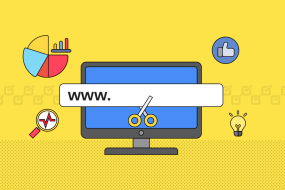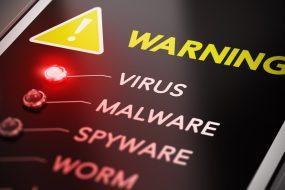
Some days, it seems as if there’s always something crazy happening in the world. Whether it’s a ransomware attack shutting down an oil pipeline, colleges and universities being inundated with hacking attempts, ridiculous AI hype or extremely high inflation, our high-tech world is always dealing with something that can affect consumers negatively. Some of these come in the form of malware and viruses. You might not think you need an antivirus program in 2023, but the threats are still quite prevalent. The only way to protect yourself is to take certain security precautions. Today we’re talking about why you still need an antivirus program in 2023? Read on to learn more.
Do You Still Need An Antivirus?
In the second decade of the 21st century, you might be asking yourself if you really need an antivirus program. After all, we live in a world of high technology and smart devices, nearly on par with Star Trek. With improved technology (especially disruptive technology) comes the risk of intrusions, malware, viruses, identity theft and more. And although many operating systems now ship with decent built-in security features, they’re not always sufficient enough to handle constantly evolving cyber threats. An antivirus program acts like a defensive shield or suit of armor, ensuring that your digital life remains protected from the dangers of the online world. So, it’s best not to allow complacency or a false sense of security to compromise your online safety. You’ll want to invest in a reliable antivirus solution and safeguard your devices and personal information against potential threats.
Most Vulnerable Devices
Every piece of tech we use has its own pros and cons. Unfortunately, some devices are a bit more prone to attacks (i.e. more vulnerable) than others. Here’s a short list of the devices that are most vulnerable to cyberattacks:
- Routers
- Printers
- Cameras
- Servers
- Computers
- VOIP devices
Believe it or not, your router, printer, and IoT devices can be an attack surface for hackers. Attackers are always seeking vulnerabilities to exploit, and since these devices are all internet-connected, they present ripe targets for cybercriminals everywhere.
Viruses Can Cause Big Trouble
Malware, ransomware, spyware, viruses and their ilk are all over the place. They lurk in every email, slither around each corner of the Internet. They’re a true menace in cyberspace. Some of the worst ones can infiltrate your system without being detected. These viruses can be devastating. They might install spyware or enable remote software so somebody can come and do your system. They could lead to Identity theft, disruption of your digital life, or financial issues. Sometimes, they’ll just wreck your entire system. Thankfully, antivirus software—with regular updates and scanning, of course—can help you here. On top of that, practice safe browsing habits, use a firewall, and fortify your defenses against malicious software.
Selecting The Right Program
Most devices already come with some sort of built-in protection software. Windows PCs, for instance, usually come with Windows Defender (a low grade antivirus program and malware scanner), a basic firewall, and a few other security features. Mobile devices usually have something as well, whether it’s a plan-based utility or just a cache-clearing tool. Either way, to get the most out of any security program requires reinforcing existing security methods and using high-quality, well-tested software to shield your machines from possible attacks. Finding strong antivirus protection and other security monitoring tools/programs is vital to keeping yourself safe. Look for programs that offer strong protection, use ai/machine learning to help keep virus definitions up to date, and feature other products beyond an antivirus. Check out a company’s reputation and user reviews before making a decision. When you take the time to carefully choose your program before implementing it, you can save yourself a lot of time, money, and effort in your pursuit to stay safe online.
Other Ways To Stay Safe Online
Staying safe online requires powerful tools: changing out passwords often, using security software, updating software, avoiding the sharing of passwords/personal data, educating your family, and practicing safe browsing habits. With the ever-evolving cyber threat landscape, you must equip yourself with these essential cybersecurity measures. By using some common sense, staying on guard, and using some of the techniques listed here, you can help minimize the risk of cyberattacks and identity theft on your own devices. Making online security a priority and staying informed about emerging threats will ultimately help you protect your digital life effectively.







